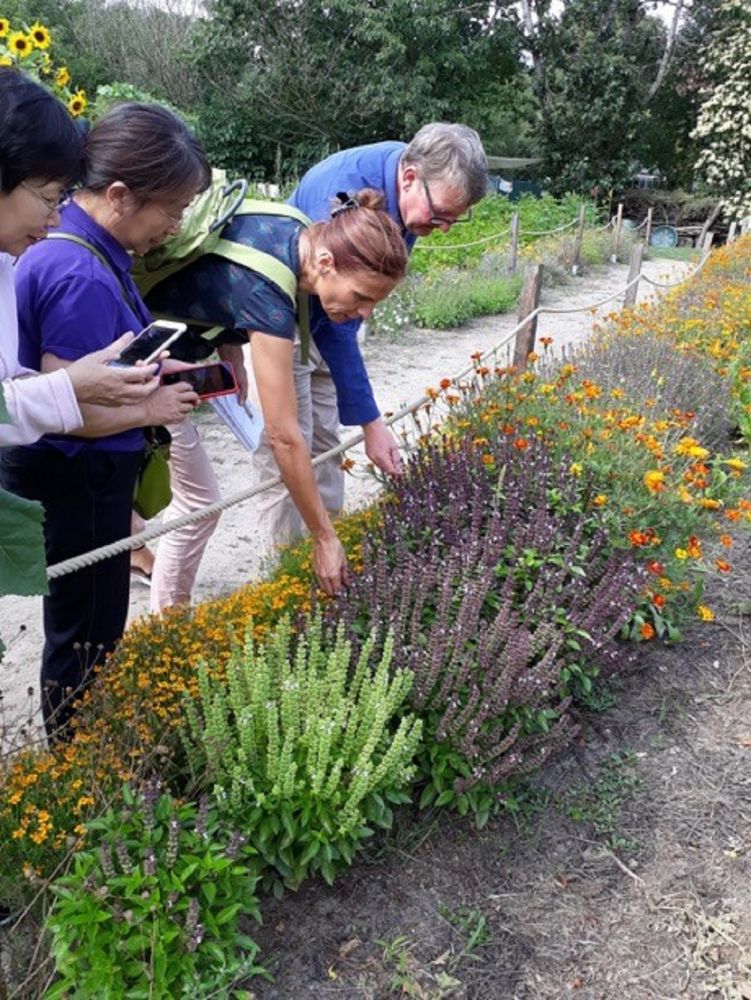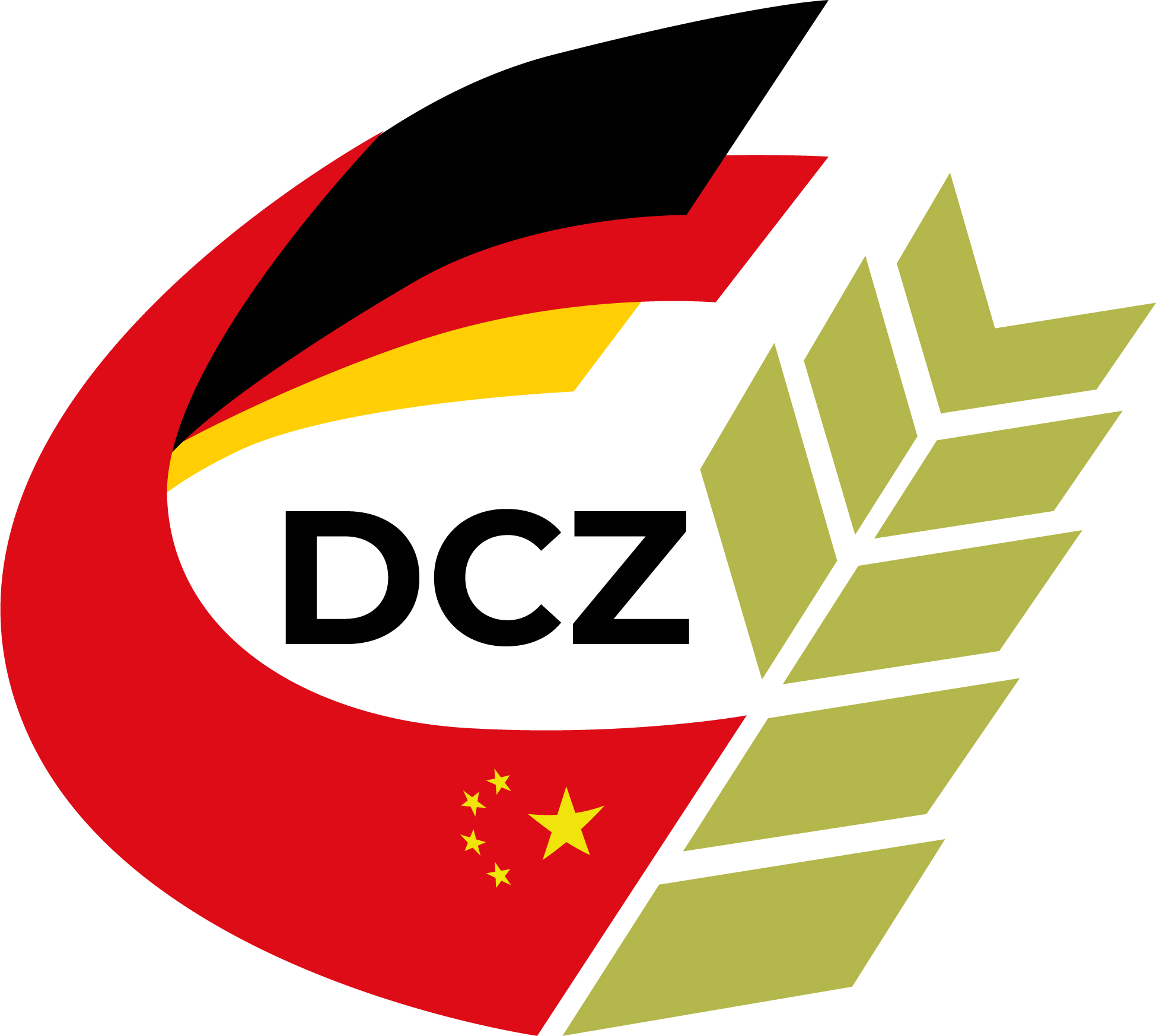Between 6-10 August 2019, DCZ organized an excursion to Germany for the experts of the DCZ sub-project “German-Chinese cooperation on Agriculture and Climate Change”. The five-member delegation from China included Mr. Li Bo, Deputy Director General (DDG) of the Department of Science and Education (MARA), Mr. Xu Wenhao, program officer at MARA, Prof. Dong Hongmin, deputy director general of the Institute of Environment and Sustainable Development (IESD) of CAAS and IPPC lead author, Prof. Li Yu’e from IESD, CAAS and IPCC lead author and Mrs. Yan Yan, program officer at the Foreign Economic Cooperation Center of MARA (FECC). All German experts of the project, led by Dr. Rita Merkle as the lead expert, participated in the tour: Prof. Barbara Amon, coordinator of the Technology Assessment and Substance Cycles Program at ATB and IPPC lead author, Dr. Gerhard Rappold, Dr. Daniel Müller, Leibniz Institute of Agricultural Development in Transition Economies (IAMO) and Mrs. Sophia Lüttringhaus, Humboldt Forum for Food and Agriculture (HFFA Research). Further, Dr. Eva Sternfeld, science advisor of the DCZ, as well as Mrs. Peggy Günther, project coordinator at IAK Agrar Consulting GmbH, participated in the study tour.
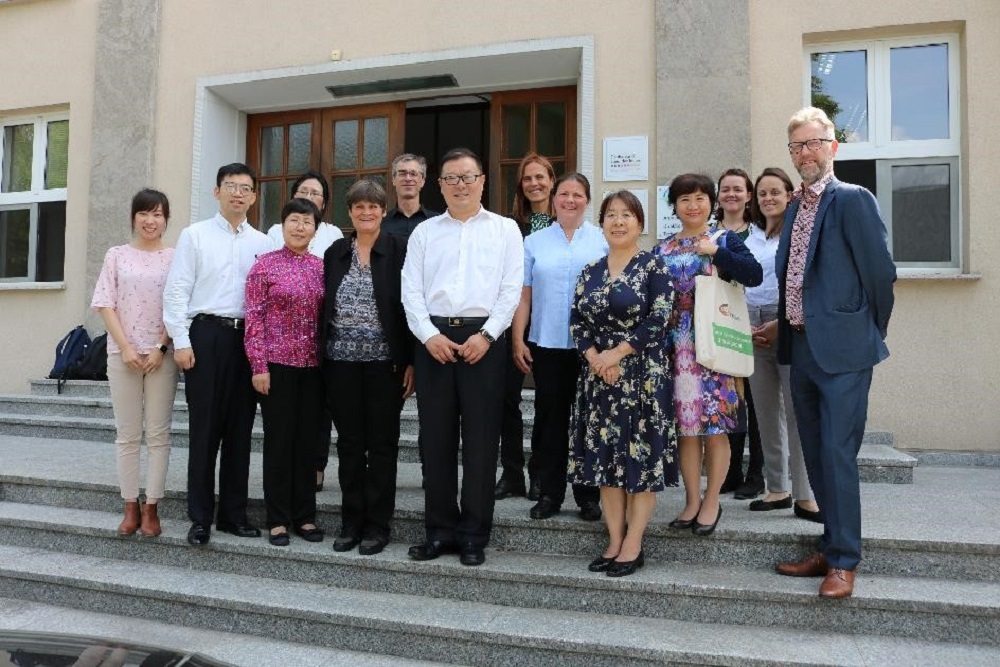
The study tour included a meeting at the Federal Ministry for Food and Agriculture (BMEL) with Mr. Friedrich Wacker, DDG for International Cooperation and Mr. Albert Wulff, DDG for Research and Innovation. In his speech Mr. Li Bo outlined MARA’s efforts in the field of climate protection. He informed that the target of China’s action plan to cap increase of agrochemical input by 2020 the latest has already been reached. He further mentioned that present strategies are concentrating on the recycling of animal waste and straw residues. He expressed the wish that the Sino-German collaboration on Agriculture and Climate will be continued beyond 2019. In his opinion, the project can make an important contribution to both global food security and mitigation of climate change. Mr. Wacker remarked that Germany has potential to develop technological solutions for challenges created by climate change, but as a single nation, Germany is too small to have a significant impact on global scale. A Sino-German cooperation in this field, however, can make achievements at higher scale. In her presentation Dr. Viola Richter from the Department on Sustainability, Climate Protection and Climate Impact at BMEL outlined the policy framework for climate protection and adaptation in Germany. In her presentation she introduced the German Climate Protection Plan 2050 and the Ten Climate Protection Measures BMEL has presented in April. More: https://www.bmel.de/SharedDocs/Pressemitteilungen/2019/077-Klimakabinett.html.
In Germany, agriculture (without LULUCF) contributes about 7,4 % to greenhouse gas emissions (GHG). Nowadays, the sector is already confronted with the consequences of a changing climate: for extreme events, such as heat waves, droughts and floods, higher frequencies and intensities are being registered. Thus, Germany’s strategies for climate adaptation were presented as well.
Dr. Monnerjahn from the Department of Research and Innovation introduced the BMEL programs to support research in the field of agricultural sciences and outlined the achievements of the Sino-German collaboration in this field. Earlier that morning the delegation had already visited the research farm LVAT Gross Kreutz in Brandenburg (https://www.lvatgrosskreutz.de/), where Director Mr. Detlef May informed about the dairy farm’s experiments improving farm animal welfare and mitigating greenhouse gas (GHG) emissions from livestock farming at the same time. The most effective measure for emission reduction from dairy cows is extending their life span through ensuring high animal welfare, which results in more lactation periods per cow. That way, their cows reach a total milk yield of ~ 42,000 kg per cow.
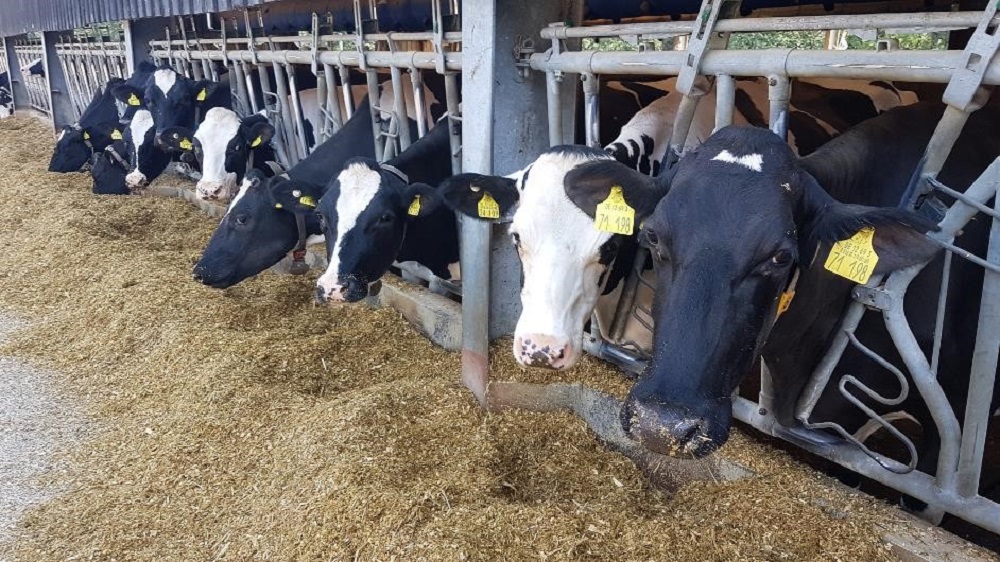
After the farm visit the delegation headed for the Leibniz-Institute for Agricultural Engineering and Bioeconomy (ATB) in Potsdam Bornim. Prof. Barbara Amon introduced the ATB research program on “Precision farming in crop and livestock production” and the institute’s research on emission mitigation from animal housing and manure management, as well as the ongoing research on health and welfare of dairy cows including impacts of heat stress. More: https://www.atb-potsdam.de/en/research-programs/precision-farming-in-crop-and-livestock-production.html.
The delegation also had the chance to visit several labs including the biochar lab and the wind tunnel, which is used to study ventilation processes and thus reduce emission potential of animal husbandry facilities.
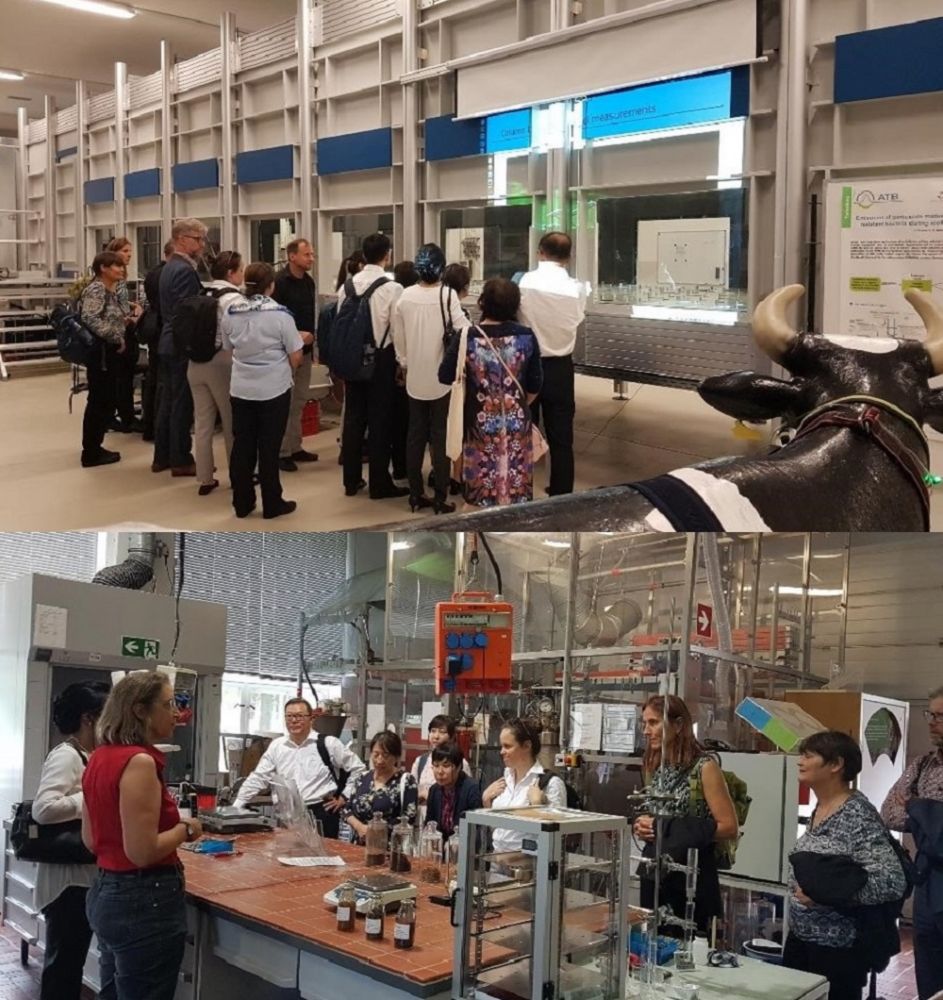
On August 7, the delegation traveled to Gatersleben to visit the Leibniz-Institute for Plant Genetics and Crop Plant Research (IPK). Prof. Dr. Jochen Reif, head of the Breeding Research introduced the institute and the challenges for plant breeding in times of climate change. After the introduction, the group visited the experimental fields of IPK guided by Dr. Peter Schreiber. Dr. Astrid Junker, head of the research group of Acclimatisation Dynamics and Phenotyping showed the respective labs. Especially impressing is their new “space ship”, the Plant Cultivation Hall, where climatic simulations under controlled conditions can be performed close to the reality in the field.
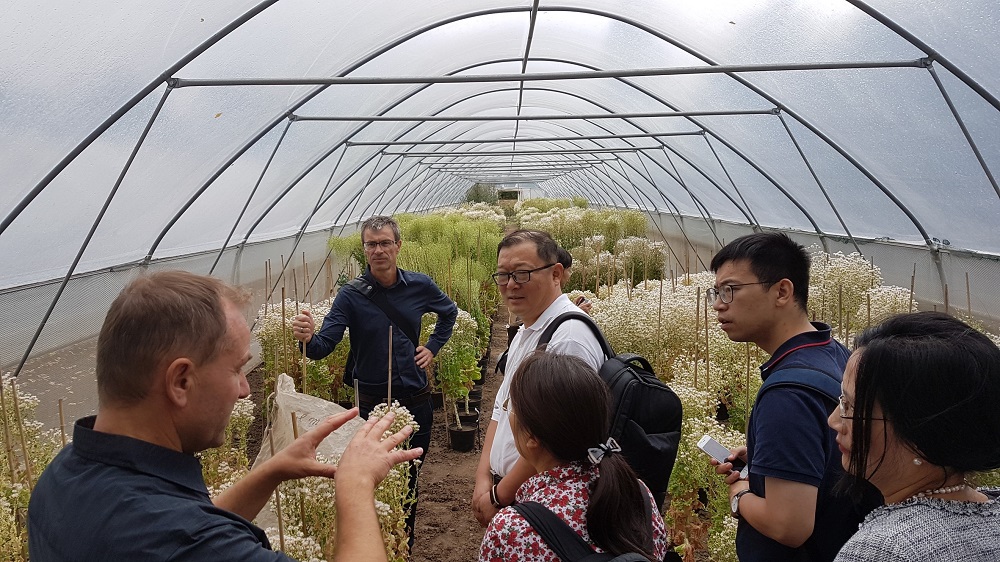
In the afternoon the delegation visited a large farm, the Agricultural Enterprise Barnstädt e.G. in Saxony-Anhalt. In the field, the group observed how the enterprise has adapted their agricultural practices to the site-specific needs as well as requirements of the EU regulation on integrated agriculture and sustainable fertilizer application.
The cooperative owns 5,500 ha land and is one of the biggest pig farms in Germany (with an annual turnover of 100.000 pigs). As managing director Ralf Hägel explained the cooperative has established a circular economy by using all residues from livestock production for fertilizer and biogas production. Manure application complies to the EU fertilizer ordinance. By not exceeding 170 kg/ha/ year the farm is eligible to receive 230 EUR per ha of subsidies from EU annually. He further explained the importance of crop rotation and soil cultivation for humus building. One of the biggest challenges at present is the abnormally drought conditions which hit the region for two consecutive years.
On August 8, the delegation visited the Thünen Institute (TI), the Federal Research Institute for Rural Areas, Forestry and Fisheries (https://www.thuenen.de/en/) in Braunschweig. Dr. Claudia Heidecke, coordinator of the Climate Unit introduced to institute and the Institute for Climate Smart Agriculture. Heidecke outlined German and international research initiatives in the field of climate protection such as the Global Research Alliance for Climate Protection and explained possible climate protection policies in agriculture, including measures such as the reduction of animal numbers and the input of mineral fertilizer, expansion of Biogas production, amendment of the fertilizer ordinance and increase of organic farming from a present 7.5 % to 20 % of agricultural land by 2030.
Dr. Roland Fuß from the TI’s Institute for Climate Smart Agriculture gave a presentation about GHG from Agriculture in Germany. According to Fuß one of the major issues in German agriculture is to reduce the emissions from livestock farming and the related social and economic conflicts. Following the presentation the group had a tour around the laboratories for GHG measurements of the Institute for Climate Smart Agriculture.
The following day, the group visited the International Plant Production Centre of the German Agricultural Society (DLG) (www.dlg-ipz.de/de). Dr. Klaus Erdle showed at the demonstration fields how different soil tillage systems, fertilisation experiments, crop rotation trials and water saving irrigation technologies can help to better prepare for climate change challenges.
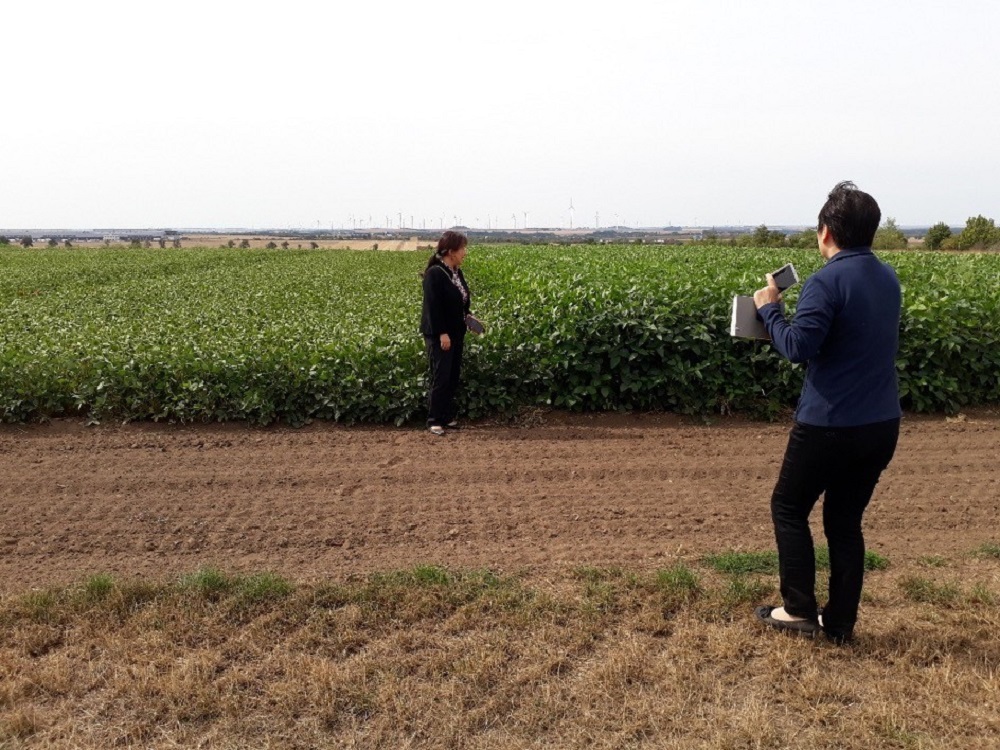
On the last day of the study tour, Prof. Dong Hongmin, Prof. Li Yu’e, German lead expert Dr. Rita Merkle and Dr. Eva Sternfeld visited the agri-food pedagogical project “Weltacker”/Global Field. Project coordinator Benny Haerlin from the Foundation for Future Agriculture (Zukunftsstiftung Landwirtschaft) guided through the 2000 m2 field and explained the project’s intention raise awareness of the link between sustainable food consumption, agricultural production and global food safety, especially targetting urban citizens and school kids.
